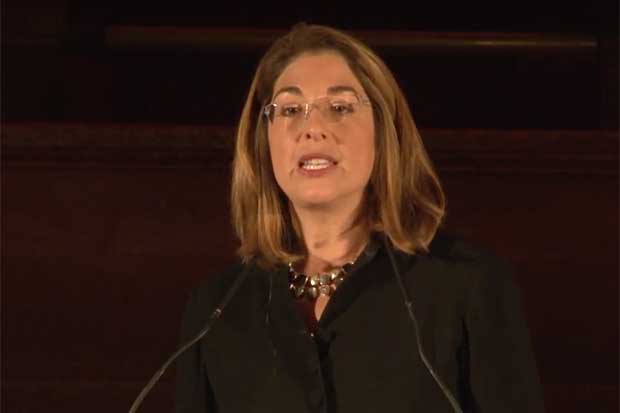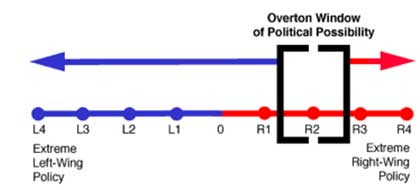Activist and author of This Changes Everything Naomi Klein has called Tony Abbott a climate villain. Why call a spade by any other name? People magazine has gone further, calling the PM the World’s Hottest Climate Criminal for 2015. Abbott’s climate criminality is the Holy Grail for a 25-year propaganda campaign run by political and corporate free marketeers who have reframed essential environmental action as irrevocable economic harm.
A Prime Ministerial pledge in 1990 to reduce greenhouse emissions by 20 per cent by 2005 has morphed into a slash and burn approach to carbon pricing, the renewable energy target, the Clean Energy Finance Corporation, the Climate Council, the Climate Change Authority and Environmental Defenders Offices. With the climate clock ticking faster than ever, what’s the quickest way to a paradigm shift in Australian environmental policy?
The answer may lie with our enemies.
Apart from their tireless efforts to employ satirists, there is little of value in American conservatives. Yet when forced to list my favourite contributions to public discourse by fundamentalist neoliberals, the concept of the Overton Window would come a close second to Sarah Palin’s insights about Russian politics. Named after the former head of a free market think tank, the term describes the range of politically acceptable policy options.
It is defined ‘not by what politicians prefer, but rather what they believe they can support and still win re-election.’ It’s a loosey-goosey window which shifts according to social pressures. It’s a tug of war between think tanks, corporate lobbyists and corporate media who move it to the right, and social movements who drag it back to the left.
Over the last two decades in the US, UK and Australia, it’s clear the neoliberal assault rifles have outgunned the slingshots of the left.
The right is far cannier than the Donald Trumps of the world would lead us to believe. They know exactly how to shift this window – bang on about policy options well outside the window and tow malleable politicians with them. They understand that incessantly chanting an idea outside the window helps it along from unthinkable, to radical, to acceptable, to sensible, to popular and then finally to policy.
As mindboggling as it seems, Trump leads the Republican race because Fox News have been dragging America towards the clinically insane end of the spectrum for longer than anyone’s nightmares care to imagine.
Owen Jones has done some stellar work applying the Overton Window to the UK’s political discourse and found the same trend: ‘neo-liberal ideas generally favoured by the Establishment are deemed moderate and commonsense; anything that even slightly deviates is written off as beyond the pale’.
You can watch Owen Jones explain the Overton Window below:
Where once questioning the social safety net was out of bounds in the motherland, now attitudes are hardening: in 1993, 55% of people thought benefits were too low; in 2011, that figure became 19%. The case is similar with immigration, where the repetition of anti-immigrant sentiment by the rising UK Independence Party has pushed the window to the right. More Britons now think immigrants should be denied the same legal rights as British citizens and believe immigrants increase crime rates.
Right-wing strategists have been equally crafty in Australia, shifting the window of acceptable public policy to the right in a whole suite of policy areas. In 1988 Bob Hawke pledged a treaty with Indigenous Australians. In 2015 Tony Abbott said taxpayers shouldn’t be expected to fund the lifestyle choices of the First Australians, while Liberal Democrat David Leyonhjelm wondered whether they were the First Australians at all.
In the late 80s John Howard’s sentiments about unsettling Asian immigration contributed to his demise as Liberal leader. Today, via One Nation, Tampa and Scott Morrison, no amount of demonization or harm done to asylum seekers is unacceptable. On the flipside, gay marriage was once unthinkable but is now popular and on the verge of becoming policy.
Circling back to climate change, much has changed since Bob Hawke made his emissions pledge. Vested corporate/political interests have set fire to the Overton Window and installed another one with a much better view of coal mines.
For many years there has been an understandable urge in the climate movement to decorate the borders of the existing window with some kind of intricate paisley pattern. There’s been talk of a carbon tax, emissions trading and saying yes to whatever meagre bone of climate action our pollies throw to us.
If we want to restore the window to a position with even a glimpse of climate justice on the horizon, as violating as it sounds, we’ll need morph into bizarro Fox News. All the influence, with none of the evil.
To haul that policy window somewhere approaching environmental necessity we’ll need to chant a case for climate action far to the left of pollution permits. We’ll need to target root causes (I’m looking at you capitalism. You’ve been very naughty) and advocate for proportional solutions. As much as we all enjoyed Al Gore’s bed time story that you could stave off climate apocalypse by recycling your Lite n’ Easy box, the need for a mass movement smacks us in the face every time Abbott pollutes the atmosphere with his voicebox.

All this brings me back to Naomi Klein, well known for her accurate descriptions of Australian Prime Ministers. Her upcoming visit for the Melbourne Writers Festival and Festival of Dangerous Ideas is a rare opportunity to heave the climate debate onto more fruitful terrain.
In her book This Changes Everything, instead of floundering in the byzantine neverland of market solutions to the climate crisis, Klein attacks the logic of capitalism itself:
Our economy is at war with many forms of life on earth, including human life. What the climate needs to avoid collapse is a contraction in humanity’s use of resources; what our economic model demands to avoid collapse is unfettered expansion. Only one of these sets of rules can be changed, and it’s not the laws of nature.
Put simply, the climate crisis means system change or bust. Klein argues that our exploitative economic model has dug us into this hole, but a mass movement with a progressive vision for the public sphere can dig us out.
Klein is optimistic about the prospects for a diverse but cohesive alliance of movements, much of which already exists. A forceful alliance united behind public infrastructure investment, re-regulating corporations, re-localising production and taxing the rich and polluting could avert climate disaster and deliver genuinely sustainable communities.
It’s an analysis far to the left of what’s currently politically acceptable in Australia, but one which could resonate with existing climate sentiment and activism.
A recent Climate Institute survey found overwhelming public support for wind and solar and grave concerns about government inaction. Klein’s visit and analysis could amplify exciting developments for the climate movement like the victory at the Bentley Blockade, the federal court win on the Carmichael coalmine, and the wave of banks distancing themselves from the Galilee Basin and transform them into a coherent political narrative.
For those who doubt Klein’s potential impact on Australia’s public discourse, the meteoric rise of left winger Jeremy Corbyn in the UK Labour leadership contest and the landslide left-wing victory in conservative stronghold and tar sands kingdom Alberta are instructive.
With effective strategy, rhetoric and leadership, the Overton Window can jump to the left in the blink of an eye.
Tony Abbott is the climate villain we never wanted.
Let’s help make Naomi Klein the climate hero we had to have.
Donate To New Matilda
New Matilda is a small, independent media outlet. We survive through reader contributions, and never losing a lawsuit. If you got something from this article, giving something back helps us to continue speaking truth to power. Every little bit counts.





